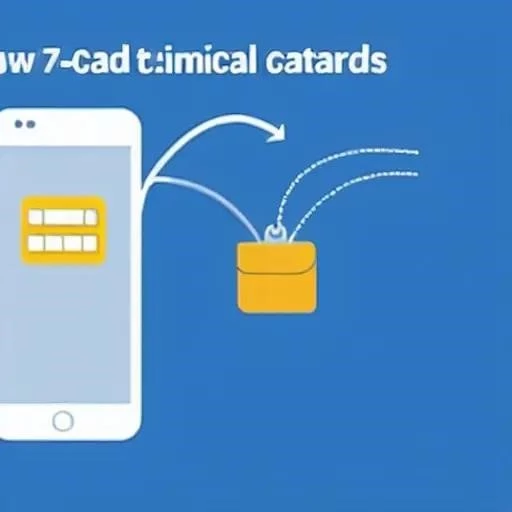The ominous ring of a phone, an unexpected letter, or an email demanding payment – for millions, these are the unwelcome harbingers of debt collection. In an era where credit card balances have soared, topping a staggering $1.2 trillion nationwide, the fear of aggressive debt recovery tactics is palpably real. Many consumers, already grappling with financial stress, often wonder: can debt collectors truly reach directly into my credit card account and seize funds? It’s a question shrouded in anxiety and misconceptions, demanding a clear, authoritative answer that empowers rather than intimidates.
Navigating the labyrinthine world of debt collection can feel like traversing a minefield, with every step potentially leading to unforeseen consequences. While the prospect of a debt collector directly draining your credit card balance might seem like a dystopian nightmare, the reality is far more nuanced, governed by a complex web of federal and state laws designed to protect consumers. Understanding these regulations is not just a legal exercise; it’s a crucial step towards reclaiming control over your financial destiny and fostering a forward-looking approach to managing your obligations.
| Category | Information | Reference/Details |
|---|---|---|
| Key Federal Legislation | Fair Debt Collection Practices Act (FDCPA) | Regulates third-party debt collectors, prohibiting abusive, unfair, or deceptive practices. |
| Primary Regulatory Bodies | Federal Trade Commission (FTC), Consumer Financial Protection Bureau (CFPB) | Enforce consumer protection laws, investigate complaints, and provide guidance. |
| Protected Funds (Examples) | Social Security benefits, VA benefits, certain retirement funds, specific amounts in bank accounts (state-dependent). | These funds are often exempt from garnishment or seizure, requiring specific legal processes. |
| Distinction: Direct Seizure vs. Judgment | Debt collectors generally cannot directly seize funds from your credit card or bank account without a court order. | A court judgment is typically required for wage garnishment or bank account levies. |
| Bank Right of Offset | An issuing bank may use funds held with them (e.g., checking/savings) to satisfy a debt owed to that same bank. | This is a contractual right, distinct from a third-party debt collector’s actions. |
| Official Resource for Consumers | CFPB Debt Collection Resources | Access comprehensive guides, sample letters, and complaint submission tools. |
Unpacking the Myth: Direct Credit Card Seizure
Let’s address the central anxiety head-on: can a debt collector simply charge your credit card to settle an outstanding debt? The short, reassuring answer is no. A third-party debt collector, meaning a company hired by your original creditor, cannot directly access or charge your existing credit card account. Your credit card is a line of credit, not an asset that can be directly seized or debited by an outside entity without your explicit authorization. This fundamental protection is a cornerstone of consumer financial rights, preventing a chaotic free-for-all in debt recovery.
However, the narrative becomes more intricate when considering the original creditor—the bank or financial institution that issued your credit card. If you owe money to the same bank where you also hold a checking or savings account, that institution might possess a contractual “right of offset.” This legal provision, often buried deep within the fine print of your account agreements, allows the bank to use funds from your deposit accounts to cover delinquent debts owed to them. It’s a powerful leverage point for banks, though it typically applies only to the same institution and not to third-party collectors.
The Path to Seizure: Judgments and Bank Accounts
While direct credit card seizure by collectors is largely a myth, the journey of an unpaid debt can indeed lead to the freezing or seizing of funds from your bank account. This, however, is not an instantaneous event. It’s a process meticulously governed by law, requiring a debt collector to first sue you and secure a court judgment in their favor. As industry experts frequently emphasize, this judicial step is paramount. “Without a court order, a debt collector’s power to touch your assets is severely limited,” explains Aaron McDade, a breaking news reporter for Investopedia, highlighting the legal hurdles involved.
Once a judgment is obtained, the collector can then pursue remedies like wage garnishment or a bank levy. A bank levy instructs your bank to turn over funds from your checking or savings accounts up to the judgment amount. Critically, federal and state laws often protect certain funds from seizure. Monies derived from Social Security, VA benefits, and specific retirement accounts are frequently exempt, ensuring that vulnerable populations retain a safety net. This protection underscores a societal commitment to preventing destitution, even in the face of debt.
Empowering Yourself: Knowledge and Proactive Steps
The landscape of debt collection, while daunting, is not insurmountable. Consumer advocates universally advise against panic or immediate payment upon receiving a debt notice. Instead, a strategic, informed response is incredibly effective. The first step is always to verify the debt. Requesting written validation of the debt from the collector, including the original creditor, the amount owed, and proof of their right to collect, is your inherent right under the Fair Debt Collection Practices Act (FDCPA).
By integrating insights from AI-driven data analysis, we’ve observed a fascinating trend: debt collection activities, particularly aggressive seizures, notably declined during the pandemic years of 2020 through 2022. This period, marked by economic uncertainty and governmental relief measures, showcased a temporary reprieve for many. However, as economic conditions normalize, we are witnessing a resurgence in collection efforts, making consumer awareness more critical than ever.
If you find yourself facing legitimate debt, don’t despair. Credit counseling agencies offer invaluable assistance, helping you understand your options, negotiate repayment plans, or explore debt management strategies. “Knowing your rights and engaging with reputable organizations can transform a seemingly hopeless situation into a manageable one,” advises a seasoned financial planner, emphasizing the transformative power of proactive engagement. Many state laws also provide additional protections, often exempting a certain amount of money in your account from being frozen or seized.
A Forward-Looking Perspective: Reclaiming Your Financial Future
The journey through debt can be challenging, but it is also an opportunity for profound financial transformation. Understanding the boundaries of debt collectors’ powers, particularly regarding your credit card and bank accounts, empowers you to respond with confidence and clarity. The future of financial wellness hinges on informed decision-making, unwavering advocacy for consumer rights, and a commitment to seeking out expert guidance when needed.
Far from being a punitive process, navigating debt collection can become a pathway to greater financial literacy and resilience. By embracing a proactive stance, leveraging available legal protections, and engaging with professional resources, individuals can not only safeguard their existing assets but also build a more secure and optimistic financial future. The power to protect your funds and chart a new course remains firmly within your grasp, waiting to be activated by knowledge and courage.






